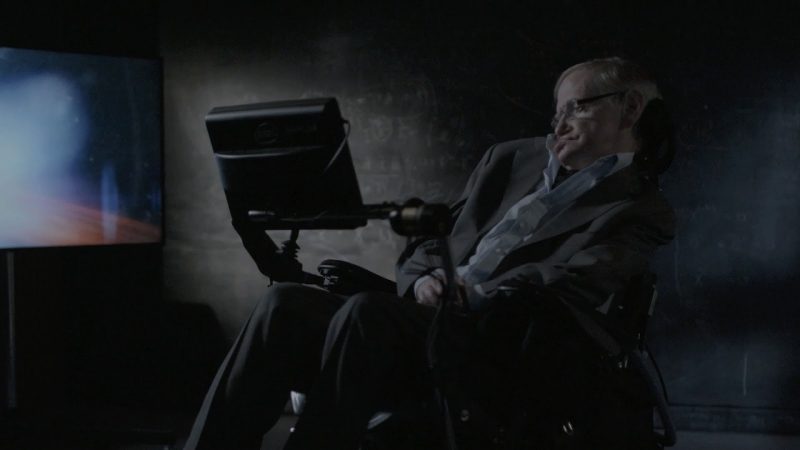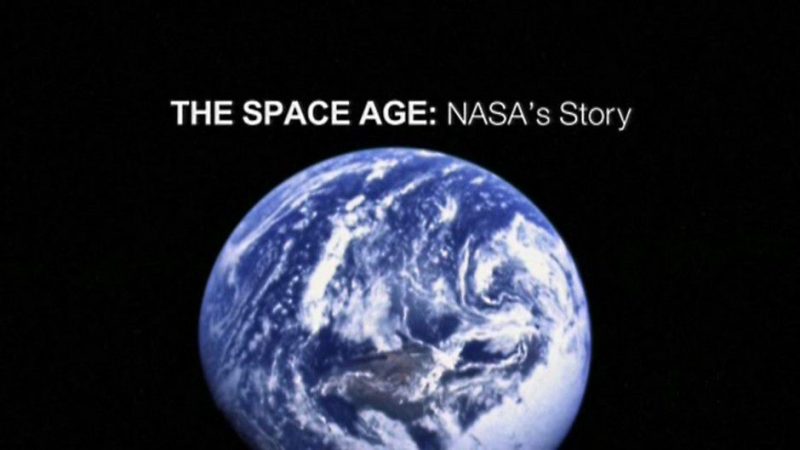The Sky at Night – Stephen Hawking on Black Holes: The programme looks at the latest understanding of black holes, featuring an interview with Stephen Hawking. Black holes are one of the greatest mysteries in the universe. They behave in a way that is contrary to laws of physics and one has never actually been seen. However, the recent detection of gravitational waves, as predicted by Einstein, proves that black holes exist and provides a way to investigate their remarkable behaviour and properties.
Stephen Hawking made headlines back in January 2016 when he told the world he’d found a possible solution to his black hole information paradox. Or in other words, he’d come up with a potential explanation for how black holes can simultaneously erase information and retain it.
The Sky at Night – Stephen Hawking on Black Holes:
Our original understanding of black holes, according to Einstein’s generally theory of relativity, is that everything that crosses the event horizon – the boundary of a black hole – is lost forever. Even light can’t escape its clutches, which is why black holes are called black holes (and also why it’s impossible for us to actually see one).But then in the 1970s, Hawking proposed that radiation actually can escape from a black hole, because of the laws of quantum mechanics. Put very simply, he suggested that when a black hole swallows one half of a particle-antiparticle pair, the other particle radiates away into space, stealing a little energy from the black hole as it leaves.
Because of this, eventually, black holes can disappear, and the only remaining trace would be the electromagnetic radiation they emitted – which is known as ‘Hawking radiation’.The problem is that, according to Hawking’s best calculations, that radiation would contain no useful information about what the black hole ate – the information swallowed up would have been lost forever. And that doesn’t gel with our understanding of modern physics, which states that it’s always possible to reverse time. In theory, at least, processes in the Universe will look the same if they’re running forwards or backwards.
Stephen Hawking’s Profound Insights on Black Holes: Understanding the Cosmos
Unraveling the Mysteries of Black Holes
Delving into the cosmic mysteries of black holes is like navigating a labyrinth without a map. Renowned physicist Stephen Hawking, however, emerged as a guide, casting light on these celestial conundrums. Hawking’s groundbreaking work transcended boundaries, revolutionizing our understanding of these celestial entities. The theories he developed make it easier to grasp these phenomena that lie far beyond our tangible reach.
Black holes, dubbed as the universe’s ultimate enigma, pull us into an intriguing discussion of their nature. As if directly out of a science fiction novel, they distort time and space, capture everything that crosses their event horizon, and cloak themselves in an impenetrable darkness.
Yet, Stephen Hawking, our intellectual torchbearer, illuminated their mysteries with his scientific theories. His groundbreaking insights allowed the academic world, and by extension, all humanity, to peer into these cosmic phenomena’s dark, enigmatic cores.
The Hawking Radiation: A Celestial Paradox
Hawking’s landmark contribution to our understanding of black holes is the concept of ‘Hawking Radiation’. This idea, as revolutionary as it was, proposed that black holes aren’t as black as we once believed. Instead, they emit a faint yet measurable radiation due to quantum effects near the event horizon.
The discovery was a bold defiance of traditional scientific norms, displaying Hawking’s prowess and inventiveness. The theory of Hawking Radiation stumped fellow scientists and physicists alike, fostering an in-depth reassessment of black hole theories.
The implication of this concept is vast. If black holes could emit energy, they could theoretically lose mass over time and eventually evaporate. This introduced the concept of black hole thermodynamics, an idea as complex and profound as black holes themselves.
Hawking’s Legacy: A Beacon in the Abyss
Stephen Hawking, despite physical adversity, charted the unknown terrains of theoretical physics. His work on black holes presented a new perspective on the universe, expanding our collective scientific consciousness.
Black holes, though seemingly imperceptible, are now part of our everyday lexicon, thanks to Hawking’s profound insights. He took us from a place of almost total ignorance about these celestial bodies to a place of deep understanding and fascination.
Not only did Hawking decipher the enigmatic nature of black holes, but he also unveiled the cosmos’s complexity in a language we could all understand. His intellectual bravery and unwavering curiosity are a testament to his extraordinary legacy.
The Unfinished Symphony: Puzzles yet to Solve
Despite the significant strides made by Hawking, black holes continue to harbor unsolved puzzles. The ‘Information Paradox’, one of the most perplexing problems associated with black holes, still stirs debates among physicists.
The paradox raises questions about the fate of the information about physical states that fall into a black hole. Does it get lost forever? Hawking initially posited that it does, a claim that sparked controversy in the scientific community.
Ultimately, even though Hawking later changed his stance, the question remains open-ended. It’s a celestial symphony left unfinished, waiting for the baton of future physicists to carry on.
Black Holes and Hawking: Lessons Beyond Physics
Stephen Hawking’s research on black holes was more than a mere scientific pursuit. It was an endeavor that taught us valuable lessons about curiosity, perseverance, and the human capacity to understand the universe.
Hawking’s work has made black holes a subject of dinner table conversations, inspiring the young and old alike to look up at the sky with a renewed sense of wonder and curiosity. From his wheelchair, Hawking showed us that physical limitations are no barrier to exploring the cosmos. His life, much like the black holes he studied, is a testament to the profound mystery and limitless potential that resides within us all.




